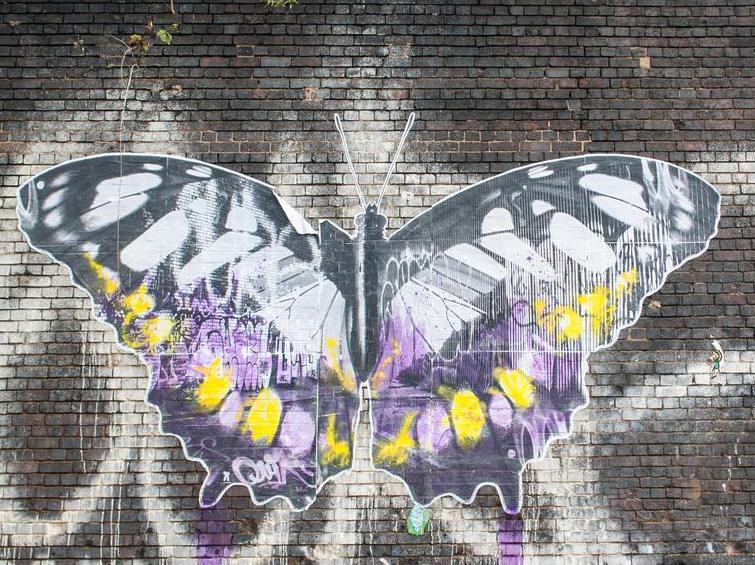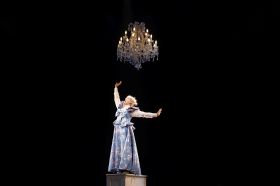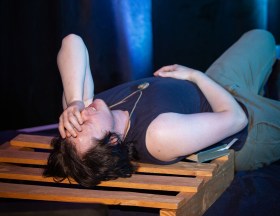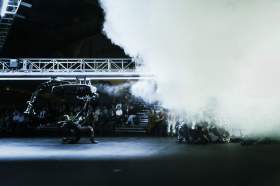Image via Shutterstock
Perhaps you’ve just returned from a few months overseas after completing secondary school; maybe you’re a mature age student who’s finally decided to bite the bullet after weighing up your options since the New Year; perhaps you’ve already started a course at university only to realise, like countless others before you, that it’s really not for you and that your heart lies elsewhere.
Whatever your reason for beginning a university course midway through the year, be assured that you’re not alone – many would-be students across Australia take up the option of mid-year entry at a tertiary institution of their choice.
Mid-year entry enables students to enter a course in the middle of the year – often with options to catch up on the lectures and units that you’ve missed out on to date, such as summer schools at the end of the year so that you can still graduate on time alongside the rest of your student cohort.
Applications differ from institution to institution, so it’s important that you do your research carefully and submit all the required documentation, but if you are considering applying for mid-year entry at an institution of your choosing, here are a few inspiring course options to start you on your way.
CREATIVE WRITING
The best way to learn your writing craft is from someone who has been there, done that, which is why Deakin University’s creative writing team is staffed by published authors.
Among them is Jodi McAlister, who has written three young adult fiction books in her Valentine series to date, the most recent of which was published this year.
While her expertise is unquestionably a drawcard for students, McAlister said it’s her journey through the challenges of becoming a published author that is so important to share.
‘If there is one thing I can get across to my students, it’s that in publishing you are going to get rejection but that’s OK,’ she said. ‘You can’t let yourself get too disheartened by it, you have to keep persisting.’
McAlister said many students who enrol in Deakin’s undergraduate Bachelor of Creative Writing degree and go on to undertake Honours or Masters courses in the field, benefit enormously from the specialised expertise of faculty staff. There are several published poets, writers of experimental fiction and others such as herself whom she describes as more ‘commercial’ writers.
‘We are really lucky at Deakin in that we have a diverse range of skills,’ she said. ‘So no matter what you want to write, there is generally someone here who you are really going to gel with.’
Read: Why published authors make the best creative writing teachers
GRAPHIC DESIGN
Tertiary education opportunities aren’t restricted to universities, with Australia’s network of TAFE colleges offering significant training opportunities for everyone from school leavers to mature age students.
‘The special thing about studying at TAFE is the access to lecturer assistance, tutoring, and the facilities,’ said Helen Alexandrou, lecturer for the Advanced Diploma in Graphic Design at TAFE SA.
The design hub at the Adelaide College of the Arts TAFE SA campus in central Adelaide boasts an open-plan, top-of-the-range studio space that is available to students after-hours as well as during the day. The area is equipped with drawing boards, paints, mixed media supplies, guillotines, cutting utensils, high-end printers and scanners, digital presentation boards and over 80 Mac computers and headphones. With access to outdoor patios and natural light, the design hub is situated within the comfortable and inspiring environment of the arts complex, surrounded by students from other creative disciplines.
‘We hear music from the music students, tapping from the dance students, and fine arts and print media is also on the same level, so we have access to all the other creative industries that are taught on our campus. It’s a very dynamic place to work for both students and staff,’ said Alexandrou.
Read: Get your graphic design start at TAFE SA
PERFORMING ARTS
Professor David Shirley, the new Executive Director of the Western Australian Academy of Performing Arts (WAAPA) has only been in the job for five weeks, but he’s already enthusiastic about the student performances he’s seen to date.
‘I’ve seen some extraordinary work and I’ve been hugely, hugely impressed,’ Shirley told ArtsHub.
At WAAPA, students don’t just learn; they perform in an eclectic array of concerts and performances throughout the year, alongside some of the finest artists in the world.
‘The students are so accomplished, so skilled and so confident – I think they’re really, really outstanding and I’m looking forward to celebrating their work locally and nationally and internationally,’ said Shirley.
Read: Introducing David Shirley – WAAPA’s new Director
CREATIVE ENTREPRENEURSHIP
It’s undeniably true that not all entrepreneurs are artists, but it is absolutely true that any artist who really wants to succeed must be an entrepreneur. Whether you’re an arts practitioner or a professional in the creative industries, you need the skills to sell yourself and your products to get ahead. If you’re serious about taking your creative career to the next level it could be time to enrol in a Diploma of Creative Enterprise with Acknowledge Creativity.
‘The skill sets of the entrepreneur and the artist are complementary, spanning across industries and opening up new possibilities,’ said Suzanne Jackson, Managing Director of Acknowledge Creativity, a division of Acknowledge Education.
‘There is a bond between art and business that makes each stronger and more relevant to the creative industries and beyond. Acknowledge Creativity builds bridges between art and business, bringing creative flair to business and business acumen to the arts.’
Read: Say hi to your inner entrepreneur with a Diploma of Creative Enterprise
CREATIVE INDUSTRIES
The point where art and industry collide has been producing the most interesting collaborations with businesses embracing innovation agendas and looking for ways to bring creativity into what they do. It’s an area Dr Tully Barnett, Senior Lecturer in Creative Industries at Flinders University, is exploring in the new Bachelor of Creative Industries that’s set to kick off in 2019.
Barnett said, ‘The world is starting to realise that it is Humanities and Creative Arts that are the go-to disciplines of the future. As the Fourth Industrial Revolution changes the nature of work, creativity and critical thinking become the two flagship skills that are not (or at least not yet!) replaceable by machines. Humanities and Creative Arts degrees embed highly transferable skills. These are the skills needed to face the complexity of the future.’
Read: On future employability in the creative arts
DRAMATIC INSPIRATION
Many aspiring actors dream of getting onto the stage and screen through a program with NIDA and their productions have been sources of international success stories. A key part of the power of their productions is their partnerships with international directors and choreographers.
According to Dr Egil Kipste, Director of the Centre for Creative Practices at the National Institute of Dramatic Arts (NIDA), bringing global talent into their classes gets actors to look outside their own artistic experience. Kipste said, ‘International directors bring a different aesthetic and skill-set to what we are used to in Australia, especially if they are from a non-English background,’ Kipste said.
Read: Why performing arts students need to broaden their cultural horizons
Mid-year can be a good time to take stock and see if you want to change your career or course. At this crossroads, there’s room for inspiration and creative thinking to power your new career.






